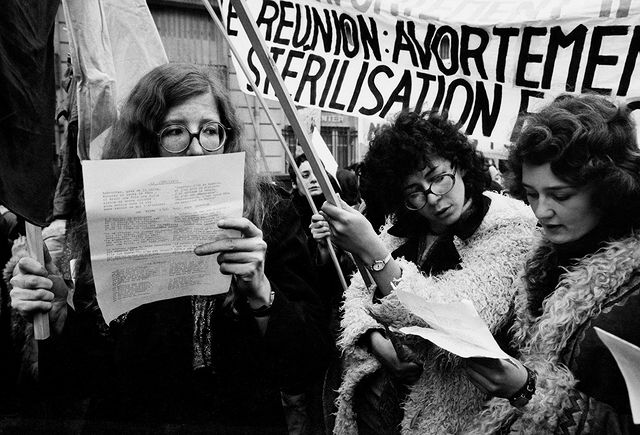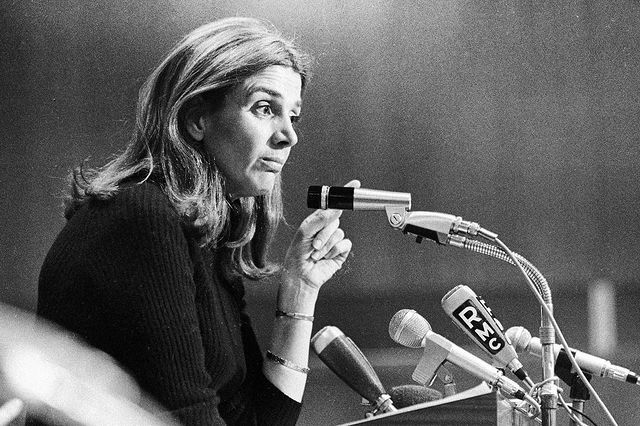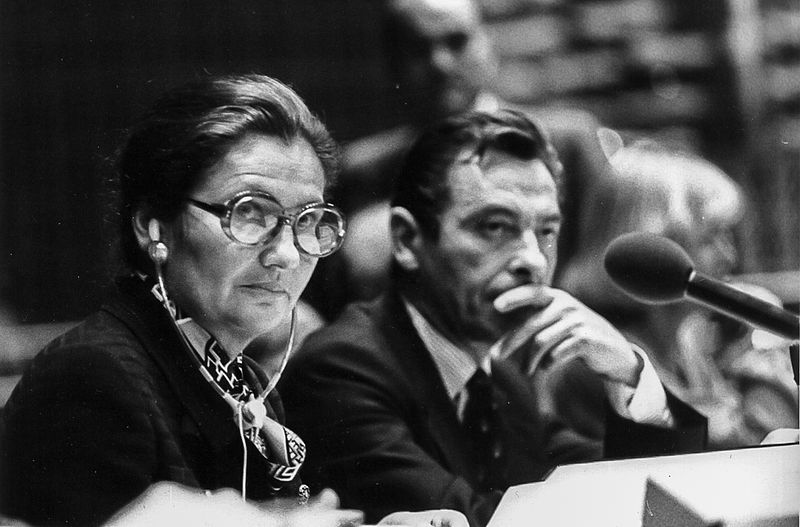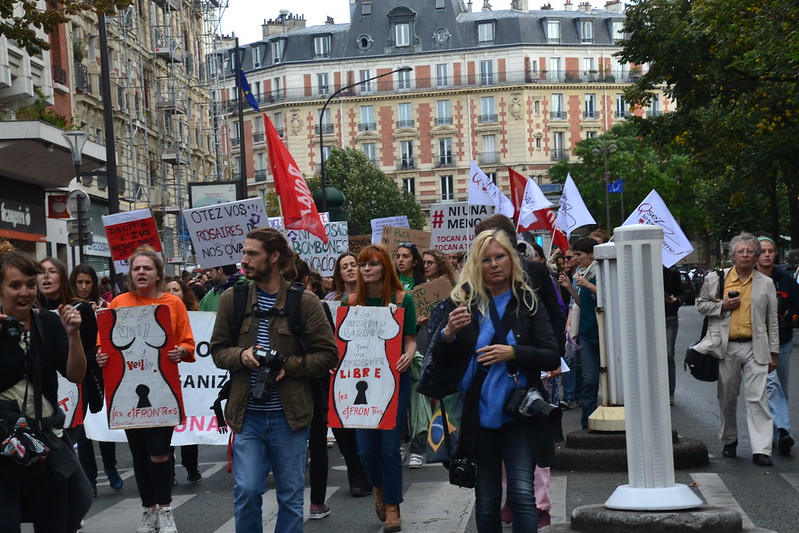Women who demand change: abortion rights in France
Abortion laws vary around the world, including total bans and tight restrictions. Today, France has relatively liberal laws towards abortion, but these laws were not put in place without a fight. A number of powerful women in French history secured the abortion rights in France that we have today.
The ‘Movement de Liberation des Femmes’ rode the coattails of the women’s lib movement in the United States as well as the 1968 Paris riots.
Part of the movement included publishing the ‘343 Manifesto.’
This act of collective rebellion changed views on abortion in France forever.
‘The 343 Manifesto’: Women coming together

When a group of women published the ‘343 manifesto‘ in the magazine ‘Nouvelle Observateur’ on April 5th, 1971, abortion had long been a criminal offense in France, with women facing imprisonment and even death under the Vichy regime during WWII.
Penned by Simone de Beauvoir, the manifesto emphasizes that due to the criminalization of abortion, women have no choice but to seek abortions in dangerous conditions. 343 well-known women including Catherine Deneuve and Marguerite Duras, signed the powerful statement:
I declare that I am one of them. I declare that I have had an abortion.
The week after publication, the satirical newspaper ‘Charlie Hebdo’ declared the women ‘salopes’ or sluts, a name that has stuck.
However, the manifesto, a declaration of civil disobedience by these prominent women began to shift societal views on abortion. Later, in 1973, the 343 Manifesto inspired a group of doctors to publish a similar text declaring their support of abortion rights.
With their manifesto, the 343 ‘salopes’ set the stage to realizing their demands: free access to contraception and the decriminalization of abortion.
Abortion rights in France: Bobigny Trial
In addition to the 343 Manifesto, the ‘Bobigny Trial’ in 1972 is another major catalyst for gaining abortion rights in France. Marie-Claire Chevalier, a 17-year-old girl, was tried for having an abortion following a sexual assault.
The trial attracted incredible media attention and revealed her painful story:
- Marie-Claire lived with her two sisters and single mother in public housing outside of Paris.
- The year prior to the trial, Marie-Claire Chevalier became pregnant after a classmate raped her.
- Marie-Claire confided in her mother and decided not to have the child.
- Her mother could not afford to pay a doctor who performed clandestine abortions. Therefore, she arranged for her daughter to visit a woman who performed illegal abortions known as a ‘faiseuse d’anges’.
- As a result, Marie-Claire was severely injured and hospitalized for days.
- Weeks later, the boy who had assaulted Marie-Claire denounced her, and she faced prison time from six months to two years and a heavy fine.
However, Marie-Claire’s mother decided to fight. She enlisted the help of Gisèle Halimi, a feminist lawyer who pledged to battle the injustice. During the trial, Halimi raised the fundamental question of bodily autonomy for all human beings regardless of their sex.
The trial gained support of numerous prominent figures. Once again Simone de Beauvoir had a voice in the abortion discussion and later stated that it was not Marie-Claire on trial, but the law for which she was tried.
Eventually, the court acquitted Marie Claire, but her mother and the ‘faiseuse d’anges’ faced fines and imprisonment.
Society took note of Marie Claire’s story as an example of the delicate and painful circumstances in which women who seek abortions often find themselves.
Abortion rights in France: Simone Veil
The Bobigny trial and 343 Manifesto successfully changed societal views on abortion. Following these important events in French society, another notable woman, Simone Veil, succeeded in changing the laws.
Veil became health minister in 1974 in the midst of a center-right wing government. She battled to legalize abortion and faced pushback from a parliament of nine women and 481 men.
She received insults, accusations of genocide, and even threats.
Yet, Veil was no stranger to hardship. She had survived deportation to Auschwitz at age 18. After the war, she studied to become a magistrate despite pushback from her husband.
Veil persisted in her battle for abortion rights within the parliament, eventually giving an impassioned speech recognizing the disastrous implications of the restrictions at the time.
Additionally, Veil acknowledged her views on abortion as an exceptional practice. She stated, “I say unequivocally that abortion should remain an exception, the last resort for a hopeless situation.”
However, she urged to empower women with the right to choose and to end dangerous and oppressive practices, citing the 300,000 abortions taking place illegally in France every year, mutilating women.
Finally, in 1975, the Veil Law was passed which decriminalized the termination of pregnancy up to 10 weeks.
Lasting Impact in France and Abroad
Since the Veil Law, abortion rights in France have expanded including:
- The Roudy Law in 1982, authorized coverage for abortions under the national health insurance system.
- In 2001, the legal limit of pregnancy termination extended to 12 weeks.
- Recently, in light of COVID-19, France has extended the timeframe for medicated abortions due to the difficulties in accessing medical facilities during the epidemic.
In addition, lawmakers have proposed a bill to legalize abortion up to 14 weeks. This bill, introduced 45 years after Simone Veil’s ground breaking decision, could make France one of the most progressive countries in the world.
The incredible progress France has made since the 1970’s cannot be attributed solely to one woman or even one group of women. On the contrary, we’ve only arrived here thanks to many different women from different walks of life who have chosen to fight against an injustice.
In particular, the ‘343 Manifesto’ has left a lasting impression worldwide, extending even to a recent similar text signed by women in Morocco where abortion is still criminalized.
These manifestos demonstrate the power of women coming together in support of each other to make change, a notion mirrored in the recent ‘Me Too’ movement that is revolutionizing society today.
Had you heard of these brave women? Please share your thoughts in the comment section below or on Twitter @maviefrancaise
Sources:
- France’s women’s liberation movement turns 50 via rfi.fr
- The ‘68 riots and the French fight for sexual freedom: Egalité! Liberté! Fraternité! Sexualité! via myfrenchlife.org
- Un Appel de 343 Femmes via http://referentiel.nouvelobs.com/
- Simone de Beauvoir: women of the world – only 217 years to go via myfrenchlife.org
- Aux origines de la loi Veil, l’avortement clandestin de Marie-Claire Chevalie via lefigaro.fr
- French abortion rights champion, holocaust survivor Simone Veil dies, aged 89 via rfi.fr
- The Deconstruction of the Veil Law on Abortion via eclj.org
- France lawmakers to look at legalising abortion up to 14 weeks via rfi.fr
- Moroccan women say they are abortion ‘outlaws’ in protest at journalist’s trial via France24.com
- Comment les 343 “Salopes” ont changé la vie des femmes via @lobs on Instagram
- 60 ans d’engagement féministe en une de @lobs via @lobs on Instagram
- «Ne vous résignez jamais» Gisèle Halimi via @odette_and_francoise on Instagram
- Simone Veil par Claude Truong-Ngoc 1979 via wikimediacommons.org
- Manifestation contre les atteintes au droit à l’avortement by Jeanne Menjoulet via flickr.com










